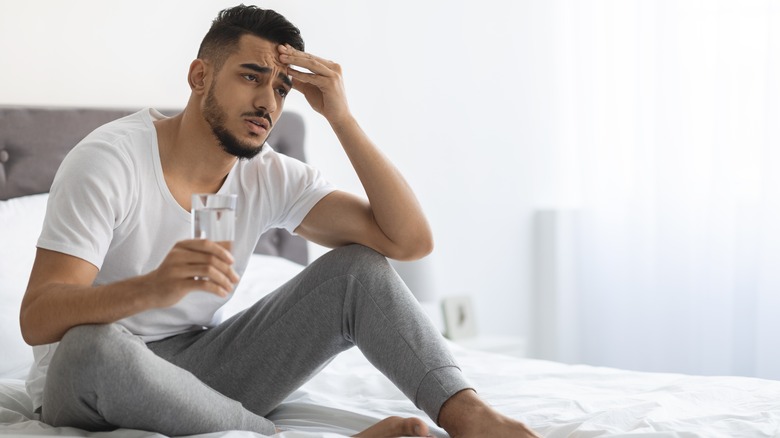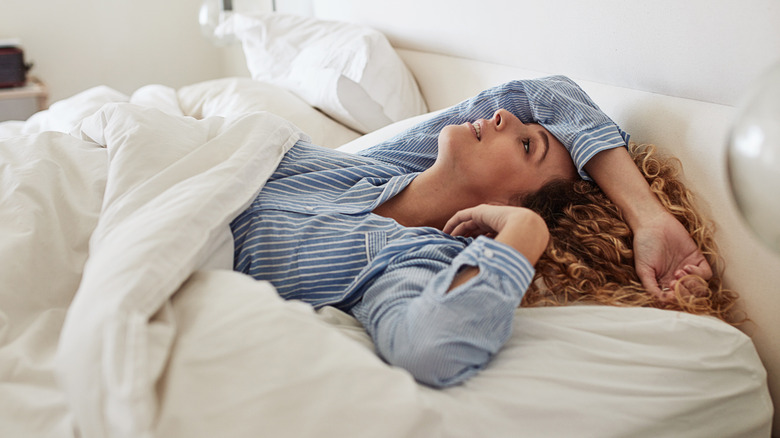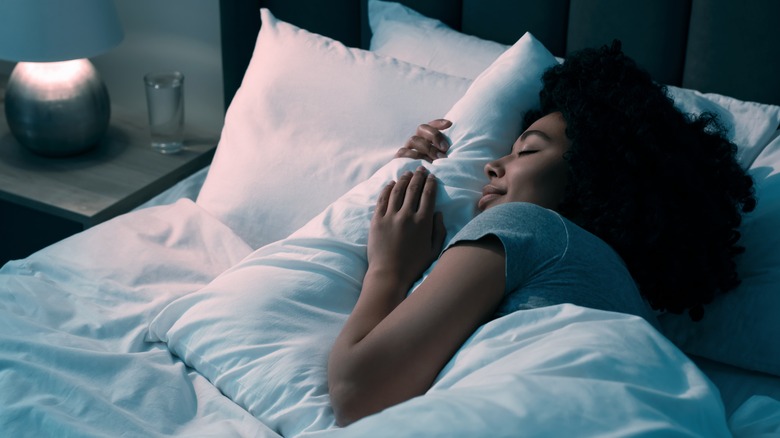What It Means When You Wake Up Early After A Night On The Town
If you had one too many glasses of champagne at your best friend's wedding last night, it's easy to think that the exhaustion (and the awful hangover) would have you sleeping for days. To your surprise, you find yourself rising and shining with the sun the next morning. Wait, didn't you just go to bed a few hours ago? What gives?
The reason many people believe that alcohol will help them sleep is that it has sedating effects. Studies have shown that drinking alcohol can have us falling asleep in less time and even boost slow-wave sleep (SWS) during the first portion of the night (via Handbook of Clinical Neurology). According to the Sleep Foundation, SWS has been linked with the health of our immune system, growth, and memory. However, what might initially seem like benefits don't last very long. Drinking alcohol before bed throws our normal sleep cycle out of whack, which can prompt you to wake up earlier than desired.
What is glutamine rebound?
Throughout the course of the night, our blood alcohol levels progressively drop as we sleep (via Handbook of Clinical Neurology). This can affect how the body transitions between different phases of sleep, specifically REM and non-REM sleep. "When you drink, you actually fall asleep faster and go into deep sleep faster," pharmacist John Mansour explained to Shape. As a result, research shows that we get less REM sleep (lighter sleep) during the night. The Sleep Foundation reports that REM sleep is critical for memory consolidation, dreaming, brain development, and more.
During the latter half of the night, sleep quality worsens and people often find themselves waking up during these hours. Mansour states that one reason this may occur is because the body undergoes what's known as glutamine rebound as we snooze off a night of drinking. Glutamine is an essential amino acid that the body stops making when we consume alcohol. Once the alcohol has worked its way out of our system, however, our body becomes aware that glutamine levels have been depleted and it kicks amino acid production into high gear. It's this activation that can then prompt us to wake up.
How to stay one step ahead of a hangover and get better sleep
If you're rolling out of bed at 7 a.m. and making a mad dash for the bathroom after a night of drinking, it means that your bladder is hard at work expelling all the toxins from your system (per Shape). Yet an urge to pee may not be the only sensation you're waking up with. Other hangover symptoms include headache, digestive discomfort, dehydration, dizziness, and more.
To help get ahead of a hangover if you know you'll be partaking in a drink or two at an upcoming event, keep the body adequately hydrated well in advance. For every drink you consume, pair it with a glass of water throughout the night. Additionally, have your last drink no less than two or three hours before bedtime. This will give your body sufficient time to process the alcohol. However, some experts alternatively advise stopping as much as four hours before climbing into bed (via CNET).
If you or anyone you know needs help with addiction issues, help is available. Visit the Substance Abuse and Mental Health Services Administration website or contact SAMHSA's National Helpline at 1-800-662-HELP (4357)



